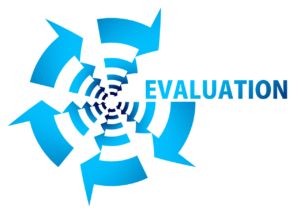
Everyone has Their Expectations: Leadership Adapting for Gen Z and Vice Versa
As organizations adapt to accommodate the values and expectations of Generation Z, there are also aspects that management may expect Gen Z employees to adapt to or develop further. These expectations …with leadership adapting for Gen Z and vice versa – often revolve around integrating into existing workplace cultures, professional development, and balancing idealism with practical business realities.
Here are key areas where management might expect Gen Z to change or adapt:

Professionalism and Workplace Norms
While Gen Z values authenticity and informal communication (often influenced by social media), management may expect them to adapt to professional norms and standards of communication, especially in formal business contexts. This includes understanding and respecting hierarchical structures when necessary and adapting their communication style to suit different audiences and situations.
Adaptability to Non-Digital Interactions
Despite being digital natives, Gen Z employees may be expected to develop strong face-to-face communication and interpersonal skills. While they are comfortable with digital communication tools, the ability to engage effectively in person is crucial for teamwork, networking, and building relationships within a professional setting.
Patience and Long-Term Focus
Gen Z is accustomed to the instant gratification provided by digital technology. In the workplace, they may need to adjust their expectations regarding career advancement and project outcomes, understanding that some goals require a long-term commitment and patience to achieve.
Handling Constructive Criticism
Management expects all employees, including Gen Z, to be receptive to feedback, including constructive criticism. Developing a thick skin and using feedback as a tool for growth is crucial. While Gen Z values transparency and open communication, learning to accept and act on feedback professionally is essential for personal and career development.
Flexibility and Resilience
While Gen Z highly values work-life balance and mental health, there will be times when work demands might temporarily disrupt this balance. Management expects employees to demonstrate flexibility and resilience, stepping up during critical project phases while finding ways to maintain overall well-being.
Navigating Ambiguity
In the fast-paced and often uncertain business environment, the ability to navigate ambiguity and make decisions with incomplete information is valuable. Gen Z might be encouraged to develop comfort with uncertainty and to take initiative even when not all variables are known.
 Balancing Idealism with Pragmatism
Balancing Idealism with Pragmatism
Gen Z’s strong values around social responsibility, environmental sustainability, and ethics are highly admirable. However, they may be expected to balance their idealism with the practical realities and constraints of business. This includes understanding economic considerations, market demands, and the complexities of implementing large-scale change within organizations.
Professional Development and Lifelong Learning
While Gen Z is very much in favor of continuous learning, management will also expect them to take ownership of their professional development. This means actively seeking out learning opportunities, being proactive about acquiring new skills, and taking responsibility for their career progression.
To foster a productive and positive workplace, organizations can provide support and resources to help Gen Z employees meet these expectations, such as mentorship programs, professional development workshops, and clear communication about workplace norms.
Leadership Adapting for Gen Z and Vice Versa – Workplace: Expectations and Values of Gen Z
Generation Z, those born from 1997 to 2012, enters the workforce with a unique set of values and expectations shaped by the technological, economic, and social changes they have witnessed growing up.
Their coming of age during significant global events, including the rise of digital technology and social media, the impact of the 2008 financial crisis, and growing concerns over climate change and social justice issues, has influenced their outlook.
Here are some expectations and values of Gen Z:
Digital Natives
 Gen Z is the first generation to grow up entirely in the digital era, making them true digital natives. They are highly comfortable with technology and expect workplaces to leverage the latest digital tools and platforms for communication, collaboration, and learning. They value efficiency and flexibility enabled by technology, such as remote work options and digital learning resources.
Gen Z is the first generation to grow up entirely in the digital era, making them true digital natives. They are highly comfortable with technology and expect workplaces to leverage the latest digital tools and platforms for communication, collaboration, and learning. They value efficiency and flexibility enabled by technology, such as remote work options and digital learning resources.
Authenticity and Transparency
This generation values authenticity and transparency in their interactions with employers and brands. They prefer open and honest communication and are more likely to engage with organizations that show a genuine commitment to their values and mission. This extends to expecting clear and direct communication about job expectations, company performance, and feedback on their work.
Work-Life Balance and Mental Health
Gen Z places a high emphasis on mental health and work-life balance. They seek employers who support their well-being through flexible work arrangements, mental health days, and a culture that does not glorify overworking. They are proactive about addressing burnout and value workplaces that acknowledge and support mental health.
Diversity, Equity, and Inclusion (DEI)
Raised in a more diverse environment and influenced by social media’s global reach, Gen Z values diversity and inclusivity. They expect workplaces to not only talk about DEI initiatives but to actively implement and demonstrate progress in creating an inclusive culture where everyone feels valued and respected.
Social and Environmental Responsibility
Gen Z is highly conscious of social and environmental issues and expects companies to be responsible corporate citizens. They are more likely to work for and purchase from companies that prioritize sustainability, ethical practices, and positive social impact. This generation seeks out employers who align with their values on critical issues like climate change, social justice, and equality.
 Career Development and Growth
Career Development and Growth
While they are early in their careers, Gen Z is highly motivated by opportunities for professional development and growth. They seek out roles that offer clear paths for advancement, skill development, and continuous learning. They value feedback and mentorship as tools for personal and professional growth.
Seeking Purpose and Impact
Gen Z wants their work to have meaning and impact. They are driven by a desire to contribute to something larger than themselves, whether through their employer’s business practices, the products and services they offer, or corporate social responsibility initiatives. Work for Gen Z is not just about earning a paycheck; it’s about making a difference.
To attract, engage, and retain Gen Z employees, organizations and leaders need to understand and align with these values and expectations, creating a workplace culture that not only accommodates but also embraces the unique contributions and priorities of this emerging generation.
By working together, both employers and Gen Z employees can create a dynamic, inclusive, and forward-thinking workplace that leverages the strengths of each generation.



